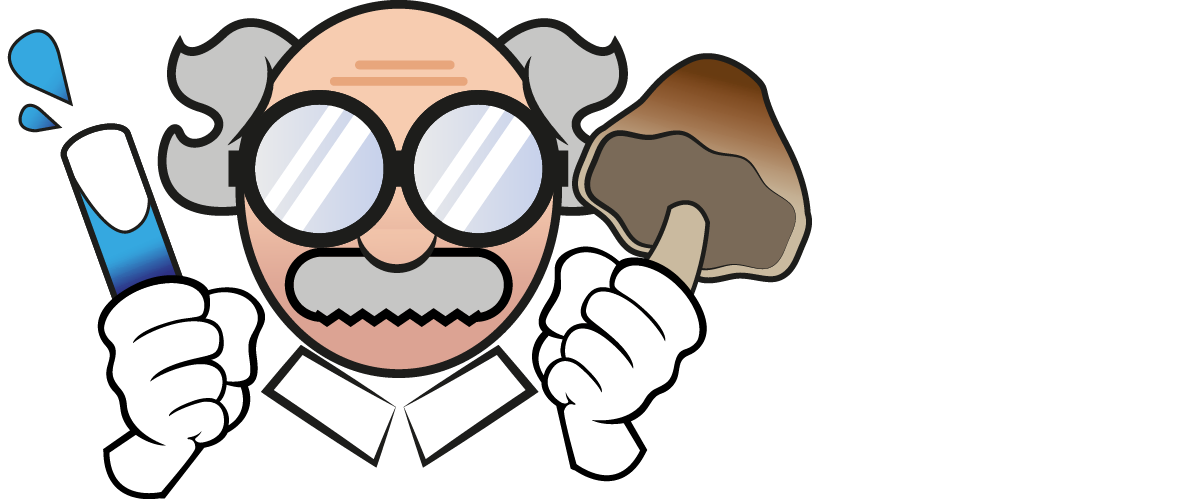Why do magic mushrooms produce mind-altering substances?
There are so many different types of mushrooms, but the ones that really stand out are the mushrooms. These contain the substance psilocybin, which has a very special effect on humans. If you eat a magic mushroom, you can experience a great trip. But in nature, everything has a function. Why would magic mushrooms actually produce this substance, what's the point? Researchers are also curious about this and have now found the answer to the question of why magic mushrooms actually produce mind-altering substances .
Mushrooms with magical powers
Anyone who uses magic mushrooms knows how powerful psilocybin can be. When you ingest this substance, you can start hallucinating, your thoughts suddenly go deeper than ever, and you actually make an insane magical trip. But then the fascinating question arises, why do magic mushrooms actually produce this substance? Surely these little fungi will not have the purpose of life to give people a good time? It will certainly have a different function.
Researchers also wanted an answer to this question. Mushrooms have been around as a species for millions of years, and there are an incredible number of different types. There are already more than 100,000 known, but there are probably many more. Mushrooms are strange and special life forms in themselves, but the mushrooms stand out. There are more than 200 species of mushrooms that produce psilocybin.
It is striking that it is not just one type of mushroom that produces this substance, but that there are so many. And these species don't seem to have much in common. Ohio State University scientists decided to delve into this topic. Why do magic mushrooms actually produce mind-altering substances? What does this mean to them?

Magic mushrooms and psilocybin: a property in the genes
Most of the properties of living things have an important and useful function. They help the creature to survive. Producing psilocybin would also be such a property. A magic mushroom probably does not produce this substance, so you (and many others with you) can have a nice trip. It would make more sense if it was meant to keep organisms away from the magic mushroom, so it wouldn't get eaten.
Scientists wanted to know more about the usefulness of psilocybin for mushrooms. That's why they put mushrooms that produce this substance under the microscope. All these species seem to have little in common, other than making psilocybin. After research, they discovered that the genes that enable the mushroom to produce psilocybin are very similar.
The scientists now believe that the genetic traits have been transferred via horizontal gene transfer. This does not happen through inheriting genetic material through the ancestors, but in a different way. This can be done, for example, by means of a virus. This usually occurs in response to a stressor. Consider, for example, the resistance to antibiotics in bacteria. Genetic material is passed on via bacterial conjugation in response to a threat.
Led by Jason Slot of Ohio State University, a team of biologists investigated multiple types of mushrooms that contain and do not contain psilocybin. They discovered a cluster of five genes that make the enzymes necessary for psilocybin production. The researchers believe that these genes are transferred from species to species as a group. Yet the question still remains: why did magic mushrooms acquire these properties? This was probably caused by a stressor.

Mind-altering substances in magic mushrooms: the role of insects
To find out why magic mushrooms produce mind-altering substances, the researchers looked at the place where magic mushrooms occur. Most of the mushroom species that produce psilocybin, species in which horizontal gene transfer occurs, grow in wooded environments. These are places where many insects occur, such as on rotting wood and animal manure.
It is now hypothesized that magic mushrooms evolved to produce hallucinogens, as this reduces the chance of them being eaten by insects. Psilocybin isn't just a poison that kills predators. It also doesn't taste bad. No, psilocybin does something different. In humans, it has mind-altering effects, but in insects the effect is different: it causes their appetite to decrease.
That's brilliant, of course. The magic mushrooms actually also change the "mind" of insects (if they have any). The mushrooms benefit a lot from this. It can be compared to the camphor tree that produces camphor, a substance that repels insects. There are also plants that produce, for example, capsaicin (in peppers and bell peppers). This substance is scorching hot and ensures that mammals stay away from the plants. However, it has no effect on birds, so they can spread the seeds of the plants.
Psilocybin therefore plays an important role in the survival of magic mushrooms. Insects that do eat the mushroom will quickly lose their appetite. Unfortunately for the magic mushrooms, this doesn't work very well in humans. They are fans of the special effects of psilocybin, and it is therefore a reason to eat these special mushrooms!
If you want to experience what it is like to trip, you can grow your own magic mushrooms at home with a 100% Mycelium, Premium or All in One grow kit. Growing magic mushrooms at home is super simple and within a few weeks your own magic mushrooms will be ready to use.







